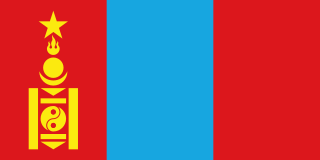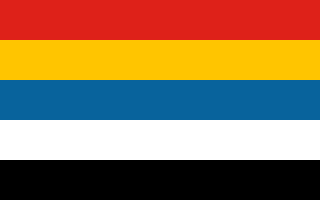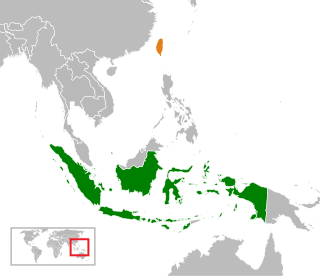
China, officially the People's Republic of China, is a country in East Asia. It is the world's most populous country, with a population of around 1.40005 billion in 2019. Covering approximately 9.6 million square kilometres, it is the world's third or fourth largest country by area. Governed by the Communist Party of China, the state exercises jurisdiction over 22 provinces, five autonomous regions, four direct-controlled municipalities, and the special administrative regions of Hong Kong and Macau.

The Asia-Pacific Economic Cooperation (APEC) is an inter-governmental forum for 21 member economies in the Pacific Rim that promotes free trade throughout the Asia-Pacific region. Following the success of ASEAN's series of post-ministerial conferences launched in the mid-1980s, APEC started in 1989, in response to the growing interdependence of Asia-Pacific economies and the advent of regional trade blocs in other parts of the world; it aimed to establish new markets for agricultural products and raw materials beyond Europe. Headquartered in Singapore, APEC is recognized as one of the highest-level multilateral blocs and oldest forums in the Asia-Pacific region, and exerts a significant global influence.
The economy of China refers to the economy of the People's Republic of China.

The Mongolian People's Republic was a unitary sovereign socialist state which existed between 1924 and 1992, coterminous with the present-day country of Mongolia in East Asia. It was ruled by the Mongolian People's Revolutionary Party and maintained close links with the Soviet Union throughout its history. Geographically, it was bordered by China to its south and the Soviet Union to its north. Until 1944, it also bordered the Tuvan People's Republic, another Soviet satellite state recognized only by Mongolia and the Soviet Union.
The Stock Exchange Executive Council of the People's Republic of China was established to improve the efficiency of the securities market in mainland China.

The Ministry of Commerce of the People's Republic of China (MOFCOM), is a Cabinet-level executive agency of the State Council of China. It is responsible for formulating policy on foreign trade, export and import regulations, foreign direct investments, consumer protection, market competition and negotiating bilateral and multilateral trade agreements of the Mainland China. It is in charge of the administration of Mainland China's foreign trade pursuant to the Foreign Trade Law. The current Commerce minister is Zhong Shan.

The history of the People's Republic of China details the history of mainland China since October 1, 1949, when Mao Zedong proclaimed the People's Republic of China (PRC) from atop Tiananmen, after a near complete victory by the Communist Party of China (CPC) in the Chinese Civil War. The PRC has for seven decades been synonymous with China, but it is only the most recent political entity to govern mainland China, preceded by the Republic of China (ROC) and thousands of years of imperial dynasties. The paramount leaders have been Mao Zedong (1949-1976), Deng Xiaoping (1978-1989), Jiang Zemin (1989-2002), Hu Jintao (2002-2012) and Xi Jinping, while Hua Guofeng briefly acted as the leader of the country during a transition period (1976-1978).
The economic history of China describes the changes and developments in China's economy from the founding of the People's Republic of China (PRC) in 1949 to the present day.

China–Japan relations or Sino-Japanese relations are the international relations between the People's Republic of China and Japan. The countries are geographically separated by the East China Sea. Japan has been strongly influenced throughout history by China with its language, architecture, culture, religion, philosophy, and law. When it opened trade relations with the West in the mid-19th century, Japan plunged itself through an active process of Westernization during the Meiji Restoration in 1868 adopting Western European cultural influences, and began viewing China as an antiquated civilization, unable to defend itself against Western forces in part due to the First and Second Opium Wars and Anglo-French Expeditions from the 1860s to the 1880s.

The following outline is provided as an overview of and topical guide to China:

The following outline is provided as an overview of and topical guide to Taiwan:

The Ministry of Economic Affairs is the ministry of the Republic of China (Taiwan) responsible for formulating policy and laws for industry and trade, foreign direct investment, energy, minerals, measurement standards, intellectual property, state-owned enterprises. The ministry is a cabinet level government agency of the Executive Yuan.

The following outline is provided as an overview of and topical guide to economics:

After the fall of the Qing Dynasty in 1912, China underwent a period of instability and disrupted economic activity. During the Nanjing decade (1927–1937), China advanced in a number of industrial sectors, in particular those related to the military, in an effort to catch up with the west and prepare for war with Japan. The Second Sino-Japanese War (1937–1945) and the following Chinese civil war caused the retreat of the Republic of China and formation of the People's Republic of China.

The economic history of China is covered in the following articles:
Globalization in China discusses the history of globalization in China; including the economic, social, cultural influences that have been integrated into Chinese society.

China–Switzerland relations officially began in the early 1950s.

The Republic of China (ROC) was a sovereign state based in mainland China between 1912 and 1949, prior to the nationalist government's relocation to the island of Taiwan. It was established on 1 January 1912 after the Xinhai Revolution, which overthrew the Qing dynasty, the last imperial dynasty of China. The Republic's first president, Sun Yat-sen, served only briefly before handing over the position to Yuan Shikai, the leader of the Beiyang Army. Sun's party, the Kuomintang (KMT), then led by Song Jiaoren, won the parliamentary election held in December 1912. However, Song was assassinated on Yuan's orders shortly after; and the Beiyang Army, led by Yuan, maintained full control of the Beiyang government. Between late 1915 and early 1916, Yuan Shikai proclaimed himself Emperor of China before abdicating not long after due to popular unrest. After Yuan's death in 1916, the authority of the Beiyang government was further weakened by a brief restoration of the Qing dynasty. Cliques in the Beiyang Army claimed individual autonomy and clashed with each other during the ensuing Warlord Era.

Indonesia–Taiwan relations are foreign relations between Indonesia and Taiwan. Currently, Indonesia does not officially recognize Republic of China (Taiwan) as it adopted One-China Policy; officially recognizing only the People’s Republic of China since 1950. Despite geopolitical constraints, the relations between two countries remain flourished over times, the opportunities for widening and deepening the relations have grown.

Mexico–Taiwan relations refers to the diplomatic relations between Mexico and the Republic of China (Taiwan). Both nations are members of the Asia-Pacific Economic Cooperation.













